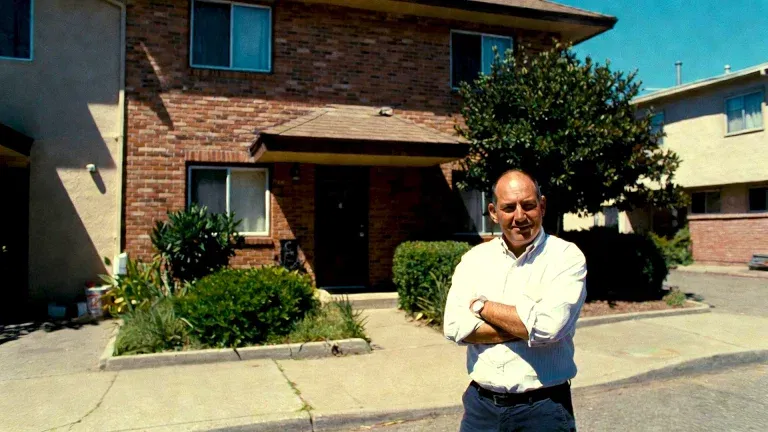As a self-managing landlord in California, you’ve probably heard whispers about Assembly Bill 1482, also known as the Tenant Protection Act of 2019. If you haven’t, buckle up, buttercup, because this law is shaking things up in the Golden State’s rental market faster than a San Andreas fault line.
Let’s explore what this means for you, your properties, and your tenants. Don’t worry—we’ll make this legal mumbo-jumbo as painless as possible. You might even crack a smile or two along the way.
What is the Tenant Protection Act?
Imagine if the state decided to play referee in the eternal landlord-tenant boxing match. That’s what AB 1482 does. It steps into the ring, blows the whistle, and lays down some ground rules that both sides need to follow.
Passed in 2019 and effective since January 1, 2020, this law aims to protect tenants from steep rent increases and unjust evictions. But before you start sweating bullets, thinking the state’s turned into Robin Hood, robbing landlords to give to renters, let’s break down what this means for you.

Rent Control: The New Math Lesson You Didn’t Ask For
Remember when you thought you’d never use algebra in real life? Well, surprise! AB 1482 brings math back with a vengeance.
Under this law, rent cannot increase more than 5% plus the change in the cost of living (based on the Consumer Price Index) or 10%, whichever is lower, in a 12-month period. If that sounds like a word problem from your nightmares, you’re not alone.
Let’s break it down with an example:
Say the CPI increase is 3%. The maximum rent increase would be 5% + 3% = 8%. But wait! Remember the “whichever is lower” part? That’s your magic number since 8% is lower than 10%.
If you’re thinking of getting creative and raising rent multiple times to sneak past this cap, think again. The law limits you to two increases in a 12-month period, and the total still can’t exceed that cap.
Just Cause Evictions: No More “Because I Said So”
Remember when “because I said so” was a valid reason for anything? Well, those days are over, at least regarding evictions.
Under AB 1482, you need a “just cause” to evict a tenant who’s been in the property for 12 months or more. These causes fall into two categories:
- At-Fault Just Cause: This is when the tenant messes up. Think non-payment of rent, breach of lease, nuisance, or criminal activity. If they’re breaking your rules, you’ve got grounds for eviction.
- No-Fault Just Cause: This is when you need the tenant out, but it’s not their fault. Examples include if you’re taking the property off the rental market, doing major renovations, or moving in yourself or a close family member.
Here’s the kicker: for no-fault evictions, you’ll need to provide relocation assistance. This means either paying one month’s rent or waiving the last month’s rent. Consider it a parting gift, except it’s mandatory and comes out of your pocket.

Exemptions: The “Get Out of Jail Free” Cards
Before planning your escape to Nevada, know that not every rental property falls under this law. Here are some notable exemptions:
- Single-family homes and condos, as long as they’re not owned by a corporation, real estate investment trust, or LLC with a corporate member.
- Duplexes where the owner lives in one of the units.
- Properties less than 15 years old.
- Certain affordable housing properties.
If your property falls into one of these categories, you might feel like you just found a “Get Out of Jail Free” card in Monopoly. But wait to start celebrating. You must still provide written notice to your tenants if your property is exempt.
The Compliance Dance: Paperwork, Paperwork, Paperwork
If there’s one thing bureaucrats love more than making laws, it’s creating paperwork. AB 1482 is no exception.
You must give your tenants written notice of their rights under this law. This notice must be in at least 12-point font (apparently, the legislature thinks we all need reading glasses).
This notice needs to be part of the lease agreement for new tenancies starting after July 1, 2020. You also needed to provide this notice for existing tenancies by August 1, 2020. If you’re reading this and realizing you forgot, well, better late than never.
The Impact on Self-Managing Landlords
You might be thinking, “This is all well and good, but what does it mean for me, a self-managing landlord trying to make an honest buck?”
Well, friend, it means a few things:
- More Paperwork: You must keep meticulous records of rent increases, eviction notices, and tenant communications. I hope you like filing!
- Increased Liability: One misstep in following these regulations could lead to legal troubles. And trust me, tenant lawyers are watching like hawks.
- Reduced Flexibility: Gone are the days of raising rent whenever you feel like it or asking tenants to leave on a whim.
- Potential for Reduced Profits: With caps on rent increases, your ability to adjust to market rates might be limited.
- Need for Legal Knowledge: You’ll need to stay up-to-date on these regulations and any changes that might come in the future.

The Silver Lining (Because Every Cloud Has One, Right?)
Now, before you start considering a career change, let’s look at some potential positives:
- Stable Tenancies: With protections against arbitrary evictions, you might see longer-term tenants, which can mean less turnover and vacancy.
- Clear Guidelines: While restrictive, these rules provide a framework for managing your properties.
- Level Playing Field: All landlords are subject to the same rules, so you’re not disadvantaged compared to larger property management companies.
- Potential for Better Tenant Relations: When tenants feel protected, they might be more likely to take care of the property and communicate issues early.
The DIY Dilemma: To Self-Manage or Not to Self-Manage?
At this point, you may be feeling overwhelmed and wondering if self-managing is worth the hassle anymore. After all, you got into real estate to make money, not to become an amateur lawyer, right?
This is where professional property management companies come in. Companies like SLPM Property Management specialize in navigating these complex regulations while maximizing your property’s potential.
Think of it this way: you wouldn’t try to rewire your entire house yourself (unless you’re an electrician, in which case, carry on). You’d call in an expert. The same principle applies here. Property management companies have the expertise, resources, and systems to ensure compliance with AB 1482 and other regulations.
Property Managers can handle everything from setting appropriate rent increases to managing evictions when necessary while keeping you on the right side of the law. Plus, they can take those 3 am calls about clogged toilets, freeing you to enjoy your beauty sleep.
The Bottom Line
AB 1482 has changed the game for California landlords. While it presents challenges, it’s not the end of the world. With the proper knowledge and resources, you can navigate these new waters successfully.
But if you’re drowning in paperwork, stressed about compliance, or tired of being a 24/7 landlord, consider professional property management.
Next Steps
Are you feeling overwhelmed? Is there an easier way? There is! Get a free property management quote from SLPM Property Management today. We’ll handle the headaches of AB 1482 compliance, leaving you free to enjoy the benefits of property ownership without the stress.
Don’t let AB 1482 turn your real estate dream into a nightmare. Contact SLPM Property Management now, and let us show you how easy property management can be. After all, life’s too short to spend worrying about rent increase calculations and just cause evictions. Leave that to us, and get back to enjoying your life!
Remember, in the world of California real estate, knowledge is power. But knowing when to call in the experts? That’s wisdom. And hey, if nothing else, at least you can impress your friends at your next barbecue with your newfound knowledge of California tenant law. Who says you can’t mix real estate regulations and small talk?
So, what are you waiting for? Get your free quote today and turn your property management headaches into hassle-free passive income. Your future self (and your stress levels) will thank you!




